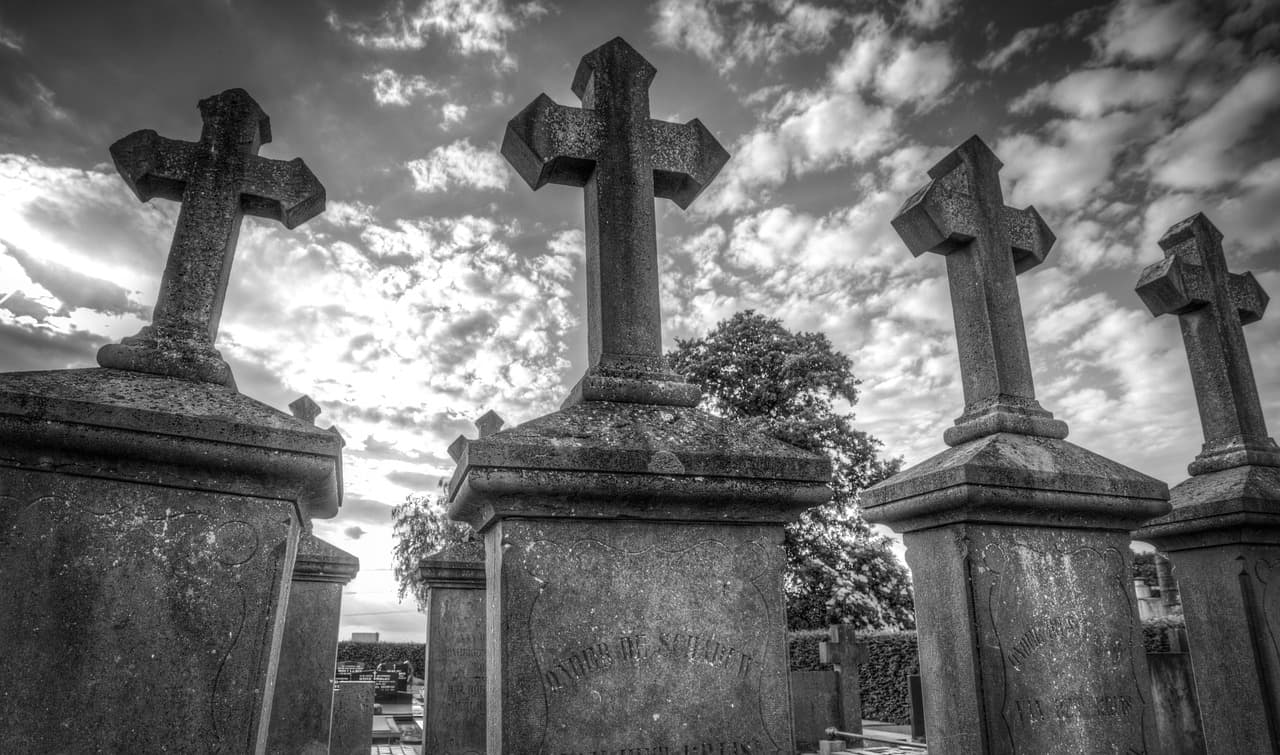The month of November is traditionally the month in which we remember our beloved dead. The custom can be traced to the doctrinal development surrounding the teachings of the Lord Jesus.
This Sunday, our Gospel reading from Mass contains these powerful words: “That the dead will rise even Moses made known in the passage about the bush, when he called out ‘Lord,’ the God of Abraham, the God of Isaac, and the God of Jacob; and he is not God of the dead, but of the living, for to him all are alive.”
In responding to the Sadducees, who did not believe in the resurrection of the dead, the Lord Jesus turned to the story of Moses and the Burning Bush. Since the Sadducees only acknowledged the five books of Moses, and nothing else of the Scriptures, the Lord drew from the portion of Scripture which they saw as inspired by God.
The Lord’s teaching in this area is as precise as it is mind-blowing. The Lord asserts a resurrection of the dead and declares that God “is not God of the dead, but of the living.” As God associated himself with Abraham, Isaac, and Jacob, so he shows that these patriarchs are not dead and gone, but rather alive and sharing a type of resurrection.
These teachings show us that death is not the end. It has no power to destroy the children of God or to break their union with one another. There is eternal life. The Lord Jesus gives his biblical teachings, but also goes far beyond mere words. The Lord shows us eternal life by his own Passion, Death, and Resurrection. In rising from the dead, the Lord definitely reveals to us the reality of the afterlife.
Upon such a foundation, Christian believers gladly remember and honor their beloved dead, especially in the month of November.
As Pope Saint John Paul II taught us: “The Church has always urged us to pray for the dead. She invites believers to regard the mystery of death not as the last word on human fate but as a journey toward eternal life.”
In particular, believers pray that the Lord will be merciful in his judgment of their loved ones. Certainly the faith community hopes that all its members find their way directly to heaven after death, but some souls aren’t quite ready. They still are in need of some additional purgation, or purifying work by God’s grace, in order to make them fit for paradise.
John Paul II continues: ““It is an important duty of ours to pray for the dead because although they may have died in grace and in friendship with God, they may still be in need of a last purification in order to enter into the joy of heaven.”
Perhaps a believer died with venial sin on their soul, or there was a habit of sin, or an offense to others that caused deep harm, or some other need of temporal punishment on the believer’s soul at the time of death. Such things would require a cleansing by Jesus Christ, so that the soul is ready and can enter the all-holiness of God’s presence.
Traditionally, this state of purification is called purgatory. In this case, the name truly says it all. Just as Jesus Christ purges and cleanses human souls in this life, and other believers can assist and serve as instruments by which this saving work is accomplished, so believers are welcomed and obliged to continue their help in this redemptive mission to those souls in purgatory.
As in this life, so in the next. Every Christian can still be a means through which God’s grace works and from which others can be saved by Jesus Christ.
And so, Christians remember and offer supplication for the dead because they love them and are still a part of them in Jesus Christ. Their prayers are effective and are a sign of the love and kindness they have for the departed loved ones. The petitions of believers are offered because they want their beloved dead to enter paradise and share in the Lord’s glory.
In Christ, therefore, we are all one body. Death comes and death goes. In Jesus Christ, we are born to eternal life and have everlasting communion with one another in him.
We see this communion of all the holy ones in Jesus Christ in our tradition of prayers, in the way we celebrate the Mass, and in the hope that surrounds us as Christian believers. These are the truths of our faith. They are what we rely on as we honor the dead, especially in the month of November.














